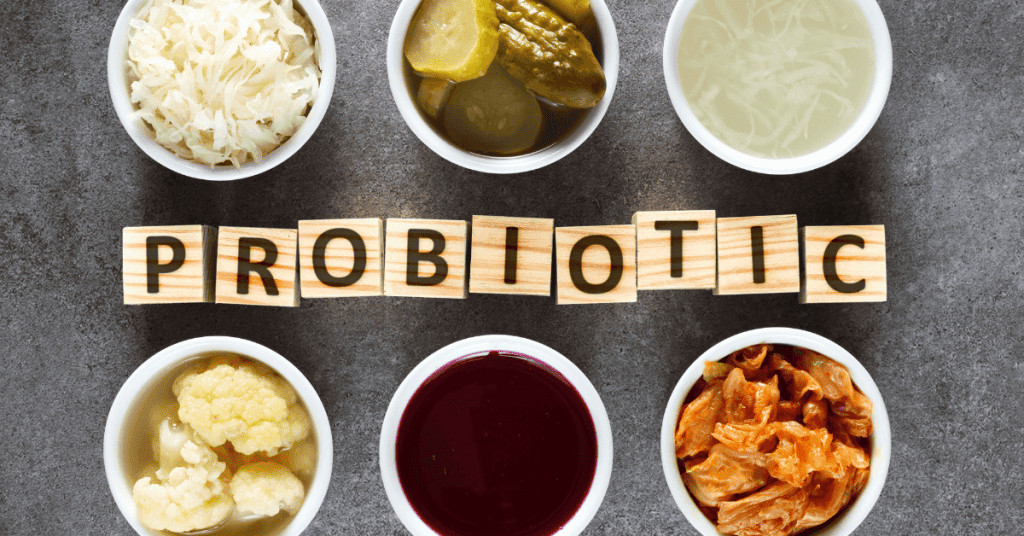
Today, we have a valuable topic of the role of probiotics in gut health and immune function.
What are Probiotics?
Before we jump into the specifics, let’s start with the basics. What are probiotics? Well, probiotics are live microorganisms that, when consumed in adequate amounts, confer health benefits to the host. They are often referred to as “good bacteria” because of their positive impact on our overall health.
Probiotics come with various strains, including lactobacillus, bifidobacterium, and saccharomyces, to name a few. Each type offers unique benefits, such as supporting digestion, enhancing nutrient absorption, and improving gut health.
The Role of Probiotics in Gut Health and Immune Function
Now, let’s delve into the fascinating connection between probiotics and our immune system. Did you know that around 70% of our immune system resides in our gut? Yes, it’s true! The gut and immune system have a close relationship, and probiotics play a vital role in supporting our immune function.
Beneficial bacteria, such as lactobacillus and bifidobacterium, help regulate and strengthen our immune response. They stimulate the production of antibodies, which are essential for fighting off harmful pathogens and protecting us from infections.
Unfortunately, not all bacteria are friendly. Some opportunistic bacteria, like certain strains of E. coli or Clostridium difficile, can interfere with our immune function and disrupt the delicate balance in our gut. This imbalance, often referred to as dysbiosis, can weaken our immune system and lead to various health issues.
The good news is that by introducing the right probiotics into our system, we can support a healthy balance of beneficial bacteria and keep opportunistic bacteria in check. This balance is crucial for maintaining a robust immune system that can effectively defend against pathogens.
Choosing Probiotics
When it comes to choosing probiotics, it’s essential to select strains that have been studied for their specific immune-supporting properties. Look for probiotic supplements or foods that contain strains like Lactobacillus rhamnosus, Bifidobacterium bifidum, (my favorite is Therbiotic)or Saccharomyces boulardii (my favorite is made by Pure Encapsulations, as these have shown promising results in supporting immune function. There are also spore-based probiotics (my favorites are MegaSporeBiotic or Proflora 4R) that are listed as Bacillus strains.
You can also get these valuable strains directly from your food and environment as well! Including fermented or cultured foods will give you a powerful dose of probiotic bacteria – foods like sauerkraut, kefir, yogurt, and fermented pickles (just be sure they’re low in sugar, additives, and truly are fermented!). Being in nature, petting animals, and being around other people can also provide a dose of bacteria. Of course, not all exposures from food, environment or others will be of the good bacteria. We’ve all picked up unwanted infections from others harboring opportunistic microbes).
Probiotics Can Be a Part of a Healthy Lifestyle
Remember, a healthy gut means a strong immune system. So, incorporating probiotics into your daily routine can help you maintain optimal gut health and bolster your body’s defense against harmful invaders. Of course, probiotics are not magic pills – you still need to consider an overall healthy diet, avoiding toxins, getting exercise, managing stress, getting quality sleep, and staying properly hydrated.
While probiotics are generally considered safe for most individuals, there are certain situations where their use may not be recommended or should be approached with caution. For example, individuals with compromised immune systems, such as those undergoing chemotherapy or organ transplant recipients, should consult with their healthcare provider before starting probiotics. Additionally, people with certain medical conditions, such as short bowel syndrome, inflammatory bowel disease (IBD), or severe acute pancreatitis, may need to exercise caution or seek guidance from a healthcare professional before using probiotics. In some cases, specific strains or formulations of probiotics may be contraindicated. It’s always best to discuss the use of probiotics with a healthcare provider, especially if you have any underlying health conditions or concerns. They can provide personalized recommendations and guidance based on your unique situation.
Quality Probiotic Products
I do also have to put in a warning here about supplement quality. This is true across ALL supplements. Unfortunately, many products have been found to not contain what they claim, to contain lower levels than claimed, different products than claimed, or nothing at all. It is vital to find and take quality, independently tested products only. I buy all of my products from an online dispensary that does this checking for me. They do independent testing and only sell from proven manufacturers. You can set up your free account here and start incorporating high quality products.
That wraps up today’s content on the role of probiotics in gut health and immune function. I hope you’ve gained valuable insights into how beneficial bacteria support our immune system while opportunistic bacteria can interfere with it. So, make sure to nurture your gut with the right probiotics and enjoy the many benefits they bring to your overall well-being.





















0 Comments